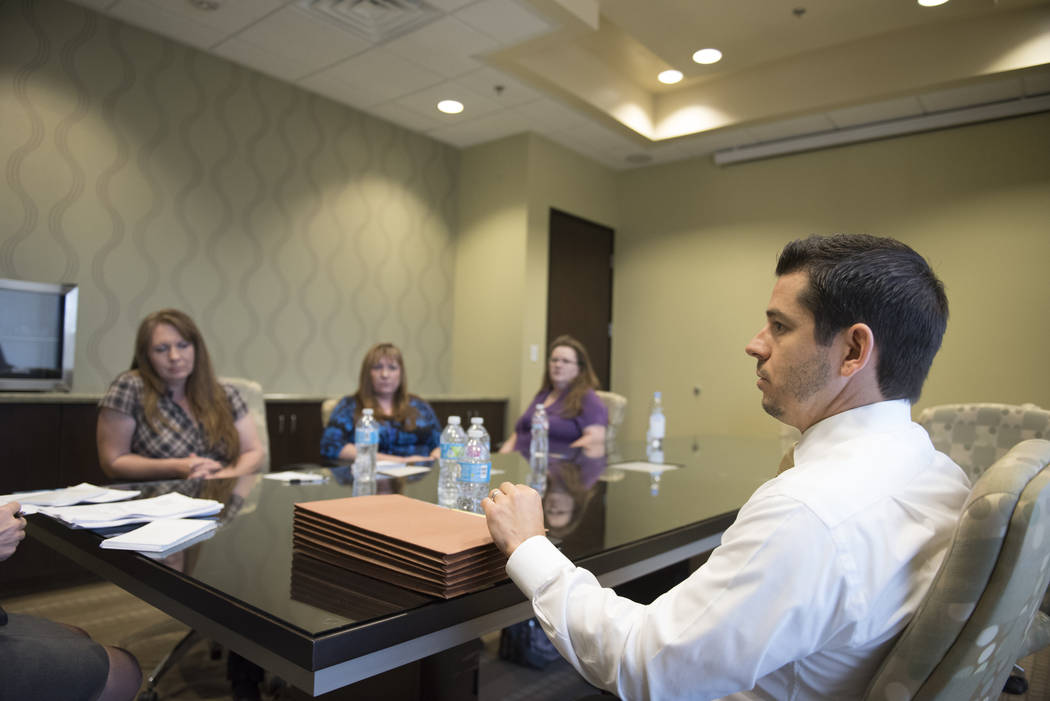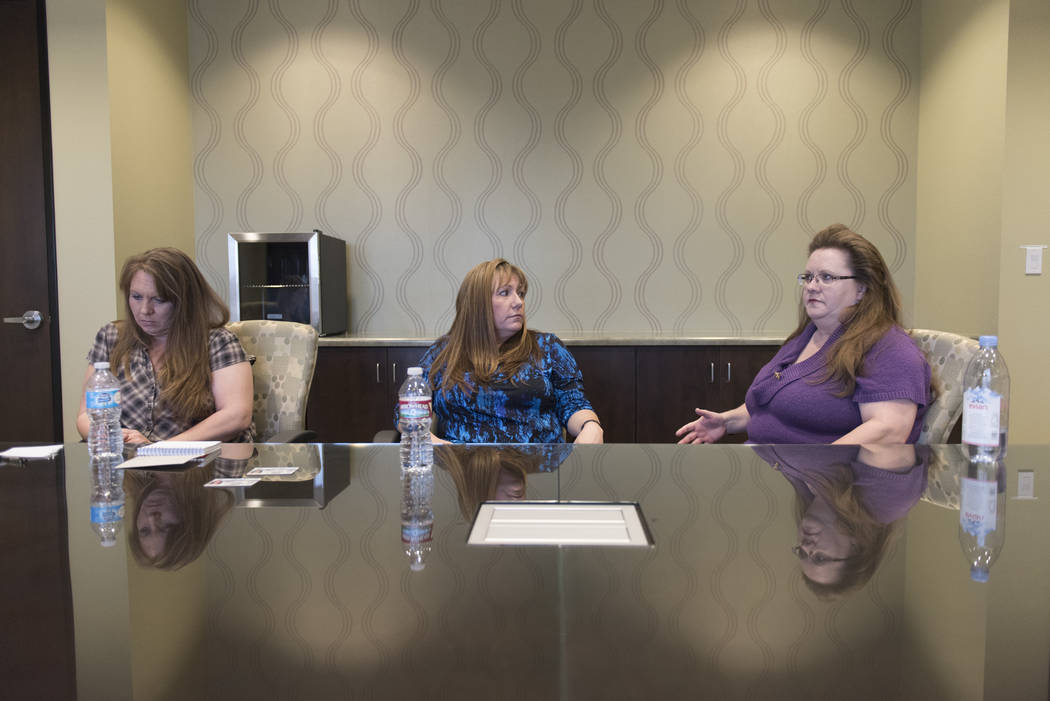Judge dismisses 2015 fraud lawsuit against Nevada Donor Network
A judge dismissed a lawsuit this week that accused the Nevada Donor Network of disfiguring a woman’s corpse.
Judith Bennett’s adult daughters said the nonprofit organization called within hours of their mother’s unexpected death in 2013. While their mother was not a registered organ donor, the women agreed to give consent for the group to harvest tissue.
In the complaint filed in late 2015, Kristine Fagone, Jerilyn Bennett and Karen Jones claimed that the organization “exceeded the scope of their consent and substantially disfigured their mother’s body.”
As the suit made its way through the court system, trial dates were set twice. The most recent setting was canceled late last year.
The case appears to have been settled, though details of the negotiation were not made public.
As recently as last month, a lawyer for the organization told District Judge Joe Hardy that the two sides had been working “toward finalizing settlement documents.”
Within a couple weeks, an order to dismiss the case was delivered to the judge. It was filed Tuesday.
Gregory Coyer, who represented Bennett’s daughters, declined to comment on the dismissal and said the women also could no longer speak about the case.
After filing the lawsuit, Coyer told the Las Vegas Review-Journal, “As far as I know, this is the first case of its kind in Nevada.”
Recent phone messages left with lawyers who represented the Nevada Donor Network were not returned.
In cases where the person who died has not made the choice to register as an organ donor, Nevada law allows certain relatives to give consent over the phone.
In a 2016 interview with the Review-Journal, Judith Bennett’s daughters said they wanted assurances that no one at a viewing would be able to detect that tissue had been removed from their mother’s body.
The daughters told the newspaper that they had based their decision to donate on comments from the Nevada Donor Network representative who told Fagone that her mother, a Henderson resident who died at 68 after suffering an aortic dissection, would “look just the same” after the procedure.
Claims in the lawsuit included fraud, intentional infliction of emotional distress and mishandling of a decedent’s remains.
Judith Bennett’s organs were not eligible for donation, but Fagone agreed to donate some of her mother’s tissue: skin, long bones and corneas.
According to the lawsuit, Fagone was told during recorded phone conversations that a strip of skin, “about as thick as when you get a sunburn,” would be taken off the back of each leg and that the femurs, tibias and fibulas would be replaced with “artificial bone.”
But the lawsuit alleged that the Nevada Donor Network “took more tissue than what was authorized, including additional skin, and all the connective tissue in the lower extremities, tissue which is necessary for the human body to have a ‘normal’ appearance.”
Contact David Ferrara at dferrara@reviewjournal.com or 702-380-1039. Follow @randompoker on Twitter.
National Donor Day
Feb. 14 is National Donor Day, a day to increase awareness about organ donation and the lives it can save.
According to the Nevada Donor Network's website, the state has more than 1.2 million registered donors. Nearly 114,000 Americans, including 624 Nevadans, are waiting for a transplant.
Attorney Gregory Coyer represented Judith Bennett's daughters in their lawsuit against Nevada Donor Network.
"We don't want people to stop donating," Coyer said in a 2016 interview. "This lawsuit is about informed consent."
























